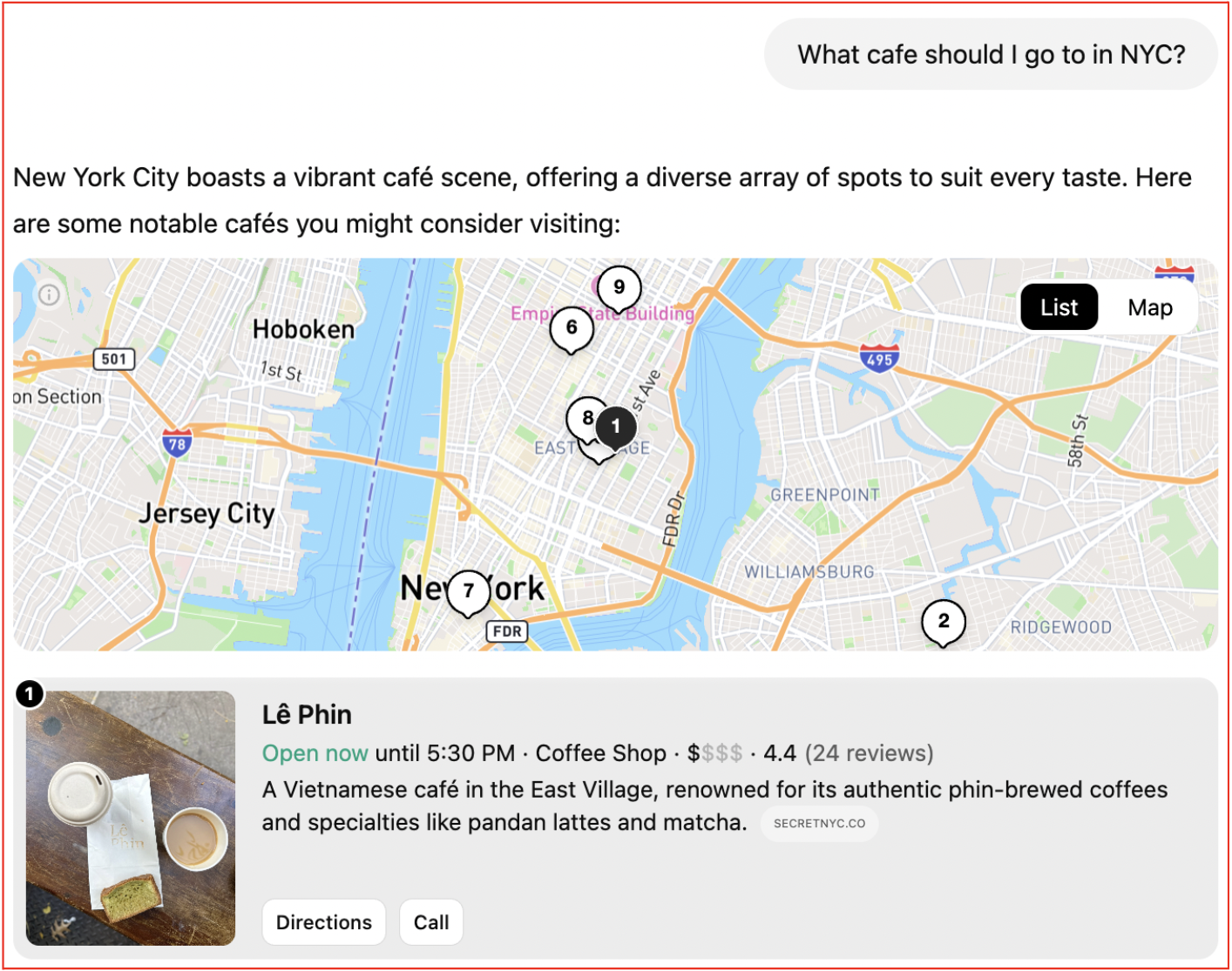AI-driven search is changing the way people find and interact with websites and businesses. Platforms like ChatGPT, Google Gemini and Perplexity AI are more than just tools for answering questions — they're referring traffic to websites, influencing search behavior, and shifting the digital marketing landscape.
Using AI and SEO
Artificial Intelligence (AI) and Search Engine Optimization (SEO) are two rapidly evolving fields that are increasingly intertwined. AI is transforming the way search engines process and rank content, while SEO strategies are adapting to these changes to improve website visibility and ranking. Understanding the intersection of AI and SEO is crucial for businesses and marketers looking to stay ahead in the digital landscape.
Traditional SEO strategies always have room for improvement as technology evolves, and businesses will benefit from looking at AI-driven traffic to understand how people are reaching their sites. The key to using AI for your marketing is to track referrals, search engines and engagement, then refine your SEO efforts based on analyzing this new data.
Tracking AI in Your Search Traffic
Before making any SEO changes, your first step should be to figure out where AI-driven traffic is coming from. AI search engines don’t show up in the automatic results on Google Analytics, so their referrals get lost in traffic unless you look for it. The best way to track AI-driven visits is by creating a custom segment in Google Analytics that isolates sessions from major AI search tools.
Your segment might track:
By filtering page referrer data using regular expressions (regex), you can create an AI traffic segment that shows how much traffic each AI search engine is driving and which pages are getting the most referrals.
Analyzing How AI Search Engines Interact With Your Website
After identifying which AI platforms are sending traffic, the next step is to analyze these patterns.
Are AI platforms consistently recommending specific pages on your site? Are users from AI search engines engaging differently than those from traditional search? Understanding these insights is crucial for optimizing your website's SEO.
This requires digging into:
- Pages that AI search engines favor.
- Queries or topics visitors are interested in.
- Engagement of AI-driven traffic compared to other traffic.
Tip: One way to analyze this data is to set up an SEO spreadsheet and make note of which pages are receiving AI-driven traffic, creating columns for whether these visitors are staying on the page, clicking links or bouncing quickly.
Optimizing Your Website’s On-Page SEO With AI Insights
Once you have a clear picture of how AI search engines are engaging with your content, you can start making informed updates. AI search tools prefer structured, digestible content that can be easily summarized and referenced. If your content is difficult to break down, AI platforms may ignore it in favor of more structured sources.
When editing your website, you should:
- Use clear headings and subheadings to create logical content sections.
- Optimize UX (User Experience) by noticing trends on pages that are ranking and making any adjustments to improve the CTR (Click-Through Rate).
- Keep paragraphs concise and avoid overly complex language that AI might struggle to process.
- Add FAQ sections with direct answers, since AI search engines often pull from FAQs to provide instant responses, so your business shows up as a source.
- Highlight unique insights that AI can’t summarize in one sentence, giving users a reason to remember your site.
Using AI Analytics for Off-Page SEO
You can take your AI analytics into your off-page SEO marketing strategies as well, using them in a broader context to inform your decisions.
Your off-page SEO for AI should include link building to optimize pages on the rise, social media marketing that engages with any newfound audiences or addresses any hot questions, and managing customer reviews by using any new data to create insightful answers.
Include Your Google Business Profile in Your Off-Page SEO Strategy
As you may have noticed when you use search engines, Google Business Profiles are increasingly showing up in the results, so you want your business at the top of that list. AI recommendations rely on high-quality product data, reviews, and structured descriptions when they’re showing relevant listings.
To ensure your Google Business Profile is optimized for AI search:
- Double-check that all information is accurate and complete.
- Optimize descriptions with SEO keywords tailored to your business goals.
- Include at least 10 high-quality images to help searchers feel confident about your business – or more, if necessary to keep up with your competitors.
- Encourage customer reviews – with photos – since AI platforms often highlight reviews in shopping search results.
- Turn on customer messaging to allow direct engagement.
Since AI business recommendations prioritize using quality and volume, taking these steps ensures your business succeeds in search results.
Monitor AI Search Trends and Adjust
AI search is evolving rapidly, and SEO strategies that work today might not be effective in six months. Staying ahead means continuously tracking AI-driven traffic trends and making adjustments as needed.
- Regularly review AI-driven traffic reports in GA4 to see if search trends are shifting.
- Test new AI-powered SEO tools to identify optimization opportunities. These AI-powered tools can help identify high-impact keywords, analyze vast data sets, and uncover long-tail keywords to improve content optimization and user intent understanding.
- Keep up with AI search updates from OpenAI, Google and Perplexity to anticipate future changes.
Digital marketing isn’t a set-it-and-forget-it situation, so by staying adaptable and refining your strategy based on real AI search data, you’ll ensure your website and business remains visible and competitive.
Future-Proof Your SEO Strategy for AI Search
By understanding the role of AI in search engine algorithms and leveraging AI-powered SEO tools and strategies, businesses can improve search engine rankings, increase website traffic, and drive more conversions. The most effective SEO strategy includes tracking AI-driven traffic, analyzing how AI search engines interact with your site, and making data-driven adjustments.
The future of SEO isn’t just about ranking on Google — it’s about ensuring your site remains relevant, and the businesses that adapt now will be the ones getting consistent traffic in the years to come.




